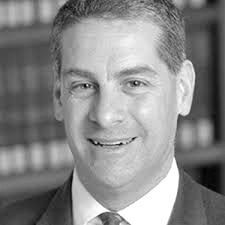If Hosea is the prophet of divine anguish, Amos is the prophet of social justice:
Thus said the Lord:
For three transgressions of Israel,
For four, I will not revoke it;
Because the have sold for silver
Those whose cause was just,
And the needy for a pair of sandals.
You who trample the heads of the poor
Into the dust of the ground,
And make the humble walk a twisted course!
Amos preached in the northern kingdom of Israel during the 9th century BCE, a time when the kingdom was at the height of its prosperity. But within this affluence lurked enormous inequality, as elites took the lion’s share of the wealth and left crumbs for the rest.
That should sound familiar, which casts a disturbing light on the nature of the prophet’s moral claim. “>modern America also has the least degree of social mobility. By far the most important predictor of your social position is your parents’.
But does that mean we are oppressors? Even if we participate in “>Beautiful Souls: Saying No, Breaking Ranks, and Hearing the Voice of Conscience in Dark Times, Eyal Press examined four people who took serious personal, political, and financial risks in order to do the right thing: 1) a Swiss army captain who allowed Jewish refugees from Hitler into Switzerland despite express orders to turn them back; 2) a Serb who lied to his superiors in order to sane Croats during the Balkans butchery; 3) an elite Israeli special forces soldier who refused to serve in the territories; and 4) a broker who was fired for refusing to sell toxic derivatives to her clients. Why did they do it? Why did they refuse to go along?
There is no formula. But Press did find something important and profound: Paul Grüninger, the Swiss army captain, actually had to look at the people he would send to their death. Unlike many other local officials, Gruninger did not have a large staff, and so dealt with cases personally. And that made it virtually impossible for him to perform his duty.
Press confirmed his point by examining the actions of Heinrich Rothmund, Gruninger’s superior, who first developed the deportation policy. Rothmund insisted that Jewish refugees be deported, and played a role in Gruninger’s eventual disgrace. But when confronted directly with refugees himself, Rothmund could not go through with deporting them.
The same phenomenon occurred with Avner Wishnitzer, the Israeli special forces soldier. After he attended a lecture about human rights abuses in the territories, he decided to investigate. He saw peace marchers being beaten by soldiers (who were following orders), and as Press relates, he also spoke to Palestinian shepherds who gave him “a tour of the destruction that had been visited on their land: wells choked with rocks, slain livestock, scorched fields. . . a profound sense of shame washed over him.”
Direct encounters hardly constitute a magic bullet. One need only recall the legions of Tea Party supporters who traveled to the border in order to prevent impoverished Central American refugee children from entering the United States. Such confrontations made Tea Partiers even more nativist. Earlier in the century, dedicated Communists and Fascists had little trouble betraying their closest friends for the sake of the Party. Strong ideological convictions often trump the most shocking direct confrontation.
But that might be the point. The most ideologically committed people might not have their consciences shocked by the direct encounter, but others might. And that appears to be to the case with Amos’ happy and satiated Israelites, as well as the happy and satiated affluent of our own age.
The possibility of developing conscience through direct encounter with the poor and oppressed contains vast implications for Jewish education. We must provide Jewish youth sustained, active encounter with the poor and oppressed. Occasional forays into poor neighborhoods will hardly do the trick. Maintaining the status quo ensures that in order to see Amos’ targets, all we need do is look in the mirror.
The Jewish community is beginning to awaken to this moral challenge – and the potential for education that it contains. “>Tzedek America offer gap year programs for graduating high school seniors. Tzedek America’s program offers placements working on Community Organizing, Education, Poverty Alleviation, and Environmental Causes. For college graduates, “>here).
Perhaps such a call might seem impatient. But Amos was impatient. To be sure, things take time. And that time is now.





















 More news and opinions than at a Shabbat dinner, right in your inbox.
More news and opinions than at a Shabbat dinner, right in your inbox.